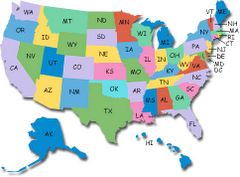I finished reading Willing Spirits by Phyllis Schieber several days ago. You can read my review just below this post (I’ll save you some scrolling--it was great!).
For me, one of the key ingredients of a great story is its characters. The way an author draws her (or his) characters on the page can elevate a book to the level of all-time favorite or (if it’s not done well) leave it languishing in the not-my-cuppa’-tea terratory. Because characters have that kind of power over me, I’m always curious about how authors create them. So when Phyllis Schieber agreed to write a guest post telling me (and you) about Jane and Gwen, the main characters in Willing Spirits, I was thrilled. So, without further ado, here’s what Phyllis had to say about her characters:
I am in love with Gwen, one of the two main characters in Willing Spirits. She is everything I’m not: tall, slim, elegant, and restrained. I love Gwen because though she is vulnerable, she has a quiet dignity. I suppose I fashioned her after elements of different women I have known, but for the most part Gwen is my invention. It isn’t that I don’t care about Jane, the other main character, or that I don’t admire Jane’s ability to forge ahead in spite of her fears, but I share too many of Jane’s characteristics. We are both Jewish, both neurotic, both steeped in self-doubt and a lack of confidence that undermines our progress. In Jane, I see too much of myself as I was in my forties. I want to shake her sometimes and tell her to hurry up and get on with it, but I simply can’t. I had to nudge Jane, get her to see that Arnold wasn’t worth the trouble. Not so with Gwen. I could let her freefall into her relationship with Daniel even though Gwen and I both knew it was wrong to get involved with a married man. They were so right for each other that I had to let them fall in love. I knew she would be able to handle whatever came her way.
Gwen is a complicated character. She comes from a background that is quite foreign to me—the Southern woman I created is an amalgamation of stories I heard from my friend Bette (who was a Southerner), bits and pieces of a way of life that I picked up from reading and from other people I know, as well as a fantasy of the sort of person I thought would evolve from that society and that sort of family. Gwen’s mother is so unlike my own that it was really interesting to develop her. Nevertheless, in spite of the striking differences between Amanda and my own mother, I was still able to find some basic similarities, a fact that intrigues me because it shows that everyone shares basic likenesses in spite of their cultural differences. Still, one has to wonder how anyone survives a mother like Amanda who finds it so difficult to show love (even though I believe she genuinely loves Gwen). There is a scene in which Gwen phones her mother. Gwen needs to talk, and even though she knows her mother is selfish and basically unsupportive, Gwen wants her mother the way everyone wants a mother—someone who will listen without judgment; someone who will be supportive and understanding. In spite of their history, poor Gwen keeps going back to the well, still hoping for something. As I wrote the scene where Gwen tells her mother that Daniel has become a grandfather, hoping that Amanda will say something appropriate, something comforting, Amanda asks if Daniel has lost any weight yet, I laughed. My own mother, though she was warm and loving and supportive, was a terrible listener. I might have had the exact sort of conversation with her—parallel dialogues that could be hilarious. I love Gwen because she is so forgiving. She doesn’t call her mother on it the way I would have done. Gwen knows better. She longs for Amanda to change but accepts that she never will. I find that remarkably courageous. She wants to be a better mother to her children than her own mother was to her, but does not try to change Amanda. I find that touching.
Everything about Gwen speaks to her need for asserting herself as a strong woman. Her strange relationship with Rowena seems to underscore Gwen’s need to do what is right. She takes Rowena’s pain onto herself because it feels obligatory. Gwen is often in a position of powerlessness, and when that happens, she is willing to do whatever is necessary to make the situation right even if it is out of her comfort zone. I admire that about her. Her marriage to Theodore, ill-fated from the start, is yet another aspect of Gwen that I respect. She tries to make it work, but Theodore is such a narcissistic bully that Gwen does not have a chance. She is, first and foremost, a good mother. However, that does not prevent her from being an intensely sexual being. This conflict is so essentially female that I found it necessary to push the dichotomy between the maternal role and the sexual role and to encourage Gwen to explore the thin line between the two disparate identities. The fervor with which Gwen loves her newborn and the physical pleasure associated with that love is very overpowering to a new mother. Motherhood changes everything. Gwen gave me a chance to explore those changes and those roles from a number of perspectives.
When I create a character, it is a very personal journey. At first, I need to know everything about the character. I want to see the character as he or she evolves. I need to be able to recognize him or her if we meet. I have an intensely private relationship with each of my characters. I may love or hate them, but I always feel responsible for them no matter what they have done. I fashioned Daniel as a perfect partner for Gwen even though he is weak. A friend of mine observed this about Daniel only recently. Why can’t Daniel simply make up his mind? For that matter, I countered, why can’t Gwen? She loves him, but she also loves her independence. It is hard won after a lifetime of disappointments. Her parents had little use for her. Her husband betrayed and abandoned her. Even her beloved brother died, leaving her to navigate the consequences of his death alone. While Gwen adores her boys, Matt and Ethan, they are on their way to becoming men, and she grapples with releasing them. Loss and change—these are the proverbial rhythms of life that Gwen does her best to understand.
It was not my intent to make a statement about society as I developed the characters in Willing Spirits. When I write, I follow an inner drama, a story that needs to be told, people I want others to meet. My characters may not always be good people or even the sort I would care to befriend, but I always try to follow the Aristotelian concept of drama: a character can never be too good or too bad, or the audience (or readers, in my case) will be unable to relate to them. All of my characters are flawed, just as I am. Gwen, with all her flaws, is an admirable woman. She knows how to be a good mother, a good friend, a responsible daughter, and a strong lover. Gwen is someone I would have a coffee with and share confidences with, wishing all the while that I could have her long, beautiful legs.
I can relate, I’d have coffee with Gwen, too. Thank you, Phyllis, for sharing with us how you create your characters. They obviously come alive for you and undoubtably that is what makes them become so real to your readers. It’s what makes us care and what keeps us reading. So for anyone who is looking for a great character-driven story, check out Willing Spirits. As for me? I’m going to pick up Phyllis’s other book - The Sinner’s Guide to Confession.

Another gorgeous cover...



























3 comments:
Thanks again, Kristi. I think Gwen would love to coffee with you! I enjoyed writing this guest post. It helped me articulate my writing process.
Thanks for sharing this post! It was very interesting :)
Hi Samantha,
I hope you will get back to me after you read THE SINNER'S GUIDE TO CONFESSION!
Don't forget to look for WILLING SPIRITS as well!
Post a Comment